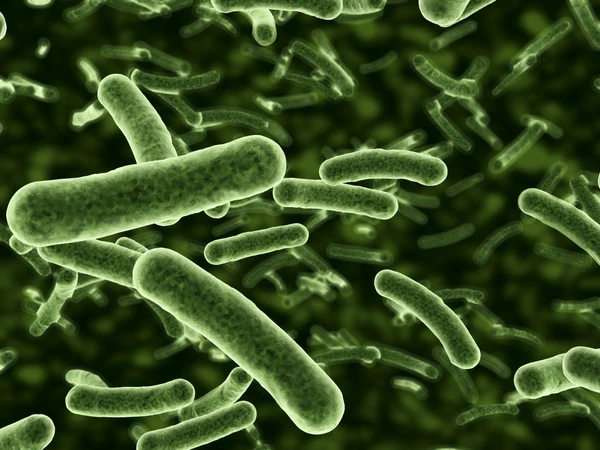NEWS
Unleashing Catastrophe? Scientists Warn Against ‘Mirror Life’ Microbes
Leading scientists have raised urgent concerns over research aimed at creating “mirror life” microbes, calling for an immediate halt to such projects. This call comes in response to the potential catastrophic risks posed by these synthetic organisms, which could escape containment and disrupt life on Earth. Mirror life involves constructing microbes from molecular structures that are mirror images of natural molecules, and experts fear these organisms could bypass the immune defenses of humans, animals, and plants, leading to untreatable infections and environmental damage.
The concept of mirror life stems from the unique characteristics of molecular chirality in nature. Biological molecules, such as DNA and proteins, exist in specific orientations. DNA, for example, is composed of right-handed nucleotides, while proteins are made of left-handed amino acids. This handedness is a fundamental feature of life as we know it. However, nature could have evolved differently, with molecules taking on the opposite orientations. Scientists have managed to synthesize large, functional mirror molecules and are taking early steps toward building mirror microbes. These organisms would use mirror molecules for their DNA and proteins, effectively creating life forms unlike anything found in nature.
While the scientific pursuit is driven by curiosity and the potential for groundbreaking applications, the risks associated with mirror microbes are profound. Mirror molecules have already shown promise in developing therapies for chronic and hard-to-treat diseases. Industrial facilities could also benefit from mirror microbes, as their resistance to contamination might improve efficiency in producing chemicals and pharmaceuticals. However, the dangers outweigh these potential benefits. Mirror microbes, if released, could evade immune responses in humans and other organisms, spreading unchecked and causing lethal infections. Antibiotics, which are designed to target natural microbes, would likely be ineffective against these synthetic organisms.
A group of 38 leading scientists, including Nobel laureates and renowned experts, has issued a report highlighting these risks. The group includes Dr. Craig Venter, a pioneer in genome sequencing, and Nobel laureates Professor Greg Winter and Professor Jack Szostak. Their findings, published in the journal Science, urge researchers and funding organizations to cease work on creating mirror microbes. They stress that such research presents an unprecedented threat to life on Earth and should not proceed without compelling evidence of safety.
One of the most alarming aspects of this research is the possibility that mirror microbes could escape containment. Traditional biocontainment measures, designed for natural organisms, may not work on mirror life forms. Natural competitors, predators, and immune defenses that control regular microbes are unlikely to affect these synthetic organisms. Once released, they could proliferate in the environment, disrupting ecosystems and threatening biodiversity.

Scientists Warn of Mirror Microbe Threat to Earth
The risks are further compounded by the potential for these microbes to outcompete natural organisms. Without natural checks and balances, mirror microbes could dominate certain ecological niches, leading to unforeseen consequences. The scientists behind the report argue that the possibility of such outcomes makes the research too dangerous to pursue.
Dr. Kate Adamala, a synthetic biologist and co-author of the report, was previously working on a project to develop a mirror cell. However, she decided to shift focus after studying the potential risks in depth. She now believes that creating mirror life is too dangerous to justify the potential benefits. Dr. Adamala and her colleagues emphasize the need for a global conversation on the ethical, environmental, and safety implications of this research.
The report outlines recommendations to address these concerns. Chief among them is a call for a moratorium on research aimed at creating mirror microbes. The authors argue that funding organizations should explicitly refuse to support projects with this goal. They also stress the importance of engaging policymakers, scientists, and the public in discussions about the potential risks and benefits of mirror life research.
The debate over mirror life highlights a broader challenge in synthetic biology: balancing the pursuit of scientific knowledge with the need to safeguard the planet. While advances in this field hold enormous potential, they also come with significant risks. Mirror molecules, for instance, could revolutionize medicine and industry if used responsibly. However, the creation of living mirror organisms crosses into uncharted territory, raising questions about humanity’s ability to control and contain such developments.
Scientists Warn of Mirror Microbe Threat to Earth
Not all scientists are opposed to mirror life research. Some argue that the potential benefits warrant further exploration, provided that strict safety measures are in place. Mirror chemistry, for example, could lead to breakthroughs in understanding fundamental biological processes and developing new technologies. However, even proponents of this research agree that it must be approached with extreme caution.
Professor Paul Freemont of Imperial College London, who was not involved in the report, described the scientists’ call for caution as an excellent example of responsible research and innovation. He acknowledged the potential benefits of mirror chemistry but stressed the need for open and transparent discussions about its risks. He suggested that any future work in this area should be carefully regulated to ensure safety.
The potential to create mirror life represents a significant milestone in synthetic biology, but it also poses profound ethical and practical questions. As scientists continue to push the boundaries of what is possible, society must grapple with the implications of these advances. The creation of mirror life is not just a technical challenge but also a test of humanity’s ability to responsibly harness the power of science.
For now, the consensus among leading experts is clear: the risks of mirror microbes far outweigh their potential benefits. The call for a moratorium is a crucial step toward ensuring that the pursuit of scientific discovery does not come at the expense of the natural world. Whether this pause will lead to a broader reevaluation of synthetic biology’s goals remains to be seen, but it is a necessary precaution in the face of such unprecedented risks.